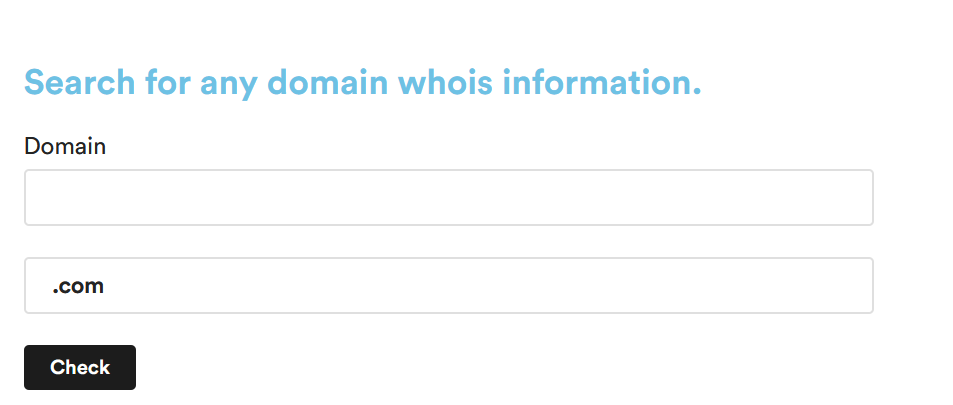Domain Owner – Every time someone registers a domain name, the domain registrar that processes the sale is required to collect basic contact information. In some cases, that information then gets submitted to the WHOIS directory, so that there’s a record of who runs each website online.
Domain Owner Checker
The WHOIS Lookup is an option for seeking out a domain name owner.
Put in the name of the domain you’re looking for and scroll down to find all the data the WHOIS directory lists for it.

That’s it; this is how you check domain owner.
When you build a website, one of your first considerations is the domain name, and with it, the domain extension. In the past, businesses had only two options, .com or .net. Although this has changed and more than a thousand extensions are now available, .com still dominates the web. Does it matter? Here’s what you need to consider.
What Is the Purpose of Your Website?
The top-level domain (TLD), also known as the domain extension or domain ending, is the part of the URL that comes after the dot. There are a lot of extensions to choose from.
Commercial Businesses
.com—the most common extension on the web
.co—Originally designated as the country code for Colombia, .co is marketed as an extension for company, corporation, or commerce. (Example: go.co)
.biz—common slang for business
.io—a location code (British Indian Ocean Territory) especially popular with gaming apps. (Example: YoHoHo.io)
Organizations
.net—designates a networking site, intended for use by online businesses whose primary function is sharing or community. Strangely enough, most major social media sites, like Facebook, Linkedin, and Twitter, use a .com extension.
.org—commonly used by non-profit organizations
Country Codes
.us—reserved for United States-based organizations and citizens. The .us domain was once reserved only for government use, but .gov proved more popular. Some businesses are adopting it to tap into patriotic company branding.
.uk—for United Kingdom sites
.ly—Originally the country code for Libya, some startups use it to complete a word for a clever domain name. (Example: bit.ly).
Specialty Domains
Introduced in 2012, specialty domains are still rare. They include:
.lawyer
.pizza
.photo
.bargains
.expert







